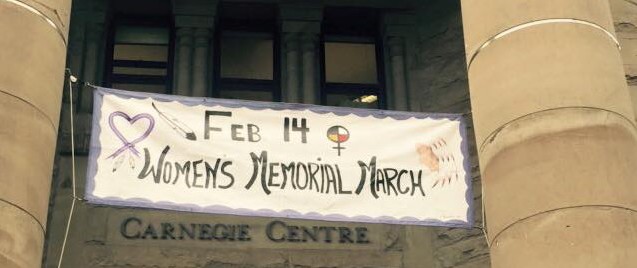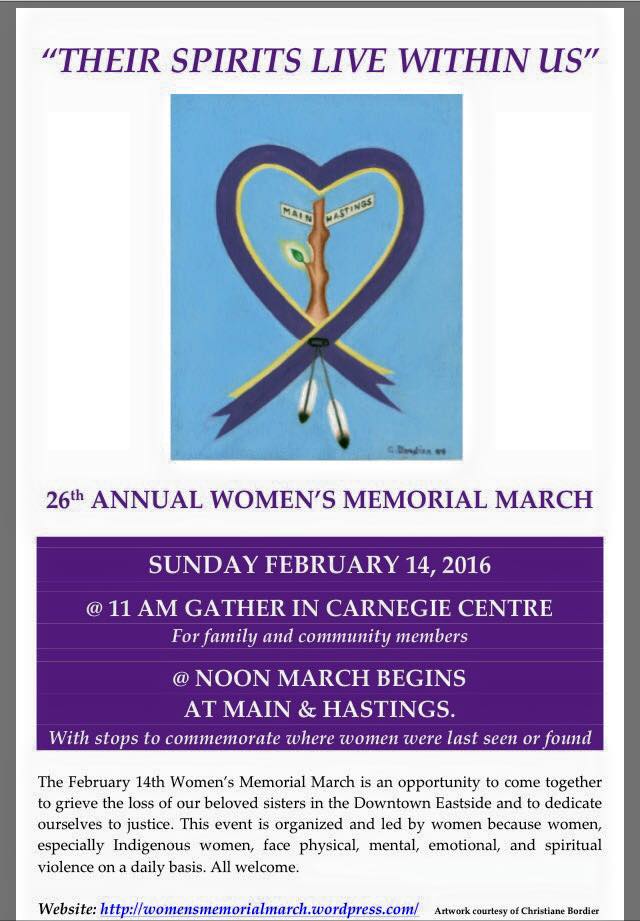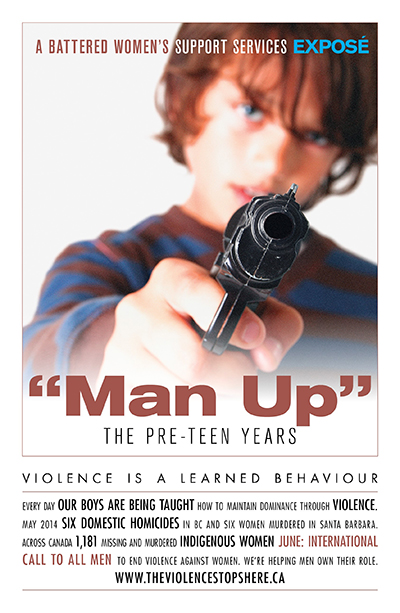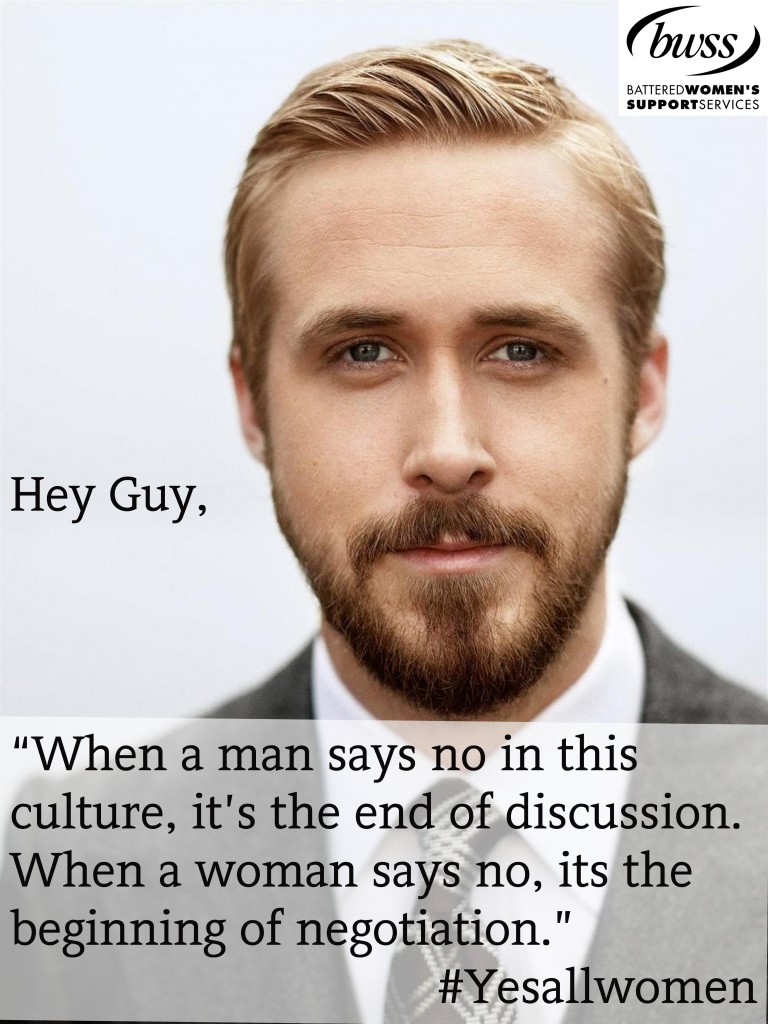International Human Rights Day
Resisting the Backlash Against Women’s Human Rights
by Ela Esra Gunad
December 10th is International Human Rights Day, a day to bring attention to the fundamental proposition in the Universal Declaration that states each one of us, everywhere, at all times is entitled to the full range of human rights which belong equally to each of us and bind us together as a global community with the same ideals and values. It was sixty-six years ago that this milestone document in the history of human rights, The Universal Declaration of Human Rights (UDHR), was adopted.
Where are we as a global community at today in terms of the rights of women?
Every day, all over the world, women and girls continue to face violence and abuse in their homes, schools, workplaces, online, and on the streets. Globally one in three women has experienced abuse or subjected to gender-based violence in their lives. Here in Canada, every six days a woman is killed by her intimate partner. Women are facing this violence simply because they are women. There are currently 1,181 missing and murdered Indigenous women and girls throughout Canada due to the historical and present day systemic and social oppressive forces.
Throughout history and still today, there has been an ongoing battle on women’s bodies during times of conflict and war. In Rwanda, between 100,000 and 250,000 women were raped during the three months of Rwandan Genocide in 1994. According to the UN agencies, more than 60,000 women were raped during the civil war in Sierra Leone (1991-2002), more than 40,000 in Liberia (1989-2003), up to 60,000 in the former Yugoslavia (1992-1995), and at least 200,000 in the Democratic Republic of the Congo since 1998. And, the history repeats itself today from Egypt, Afghanistan, and Iraq to Syria. Even in the absence of conflict or war, being a woman in these regions is being on continual alert of being harmed or killed. It cannot be ignored that during waves of militarization threaten women’s lives all the more. Women have been arbitrarily arrested and detained, physically abused, harassed, and tortured in ways you may not even want to imagine.
Living free from violence is a human right, yet millions of women and girls face this violence both in times of peace and in war, at the hands of the state, in the home, and in the community. A vast number of women experience forced migration and have to leave their homelands in order to escape gendered systemic violence including gender oppression, gender persecution, political persecution, femicide, war, economic violence, land theft, and the impacts of colonization and globalization. We know through our support and advocacy work at Battered Women’s Support Services, migrant women have always faced structural barriers and there are many inequalities that migrant women face within Canada’s economic, social, legal, and political systems. It is crucial to understand that human rights are linked to each other and these inequalities often deny the basic rights of migrant women and their families. Freedom of movement and residence within any country is a human right, yet migrant women’s lives continue to be threatened by unsafe alternatives that force them to flee their countries, and once they make it into Canada the immigration process makes them even more vulnerable to further violence by the state, by employers, and within their relationships.
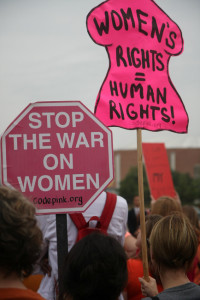
Violence is one of the most common causes of homelessness for women and children. Our work on homelessness and violence against women shows that women leave their homes because of physical and/or sexual violence. On any given day in Canada, over 8,200 women and children are living in emergency shelters and transition houses to escape violent partners. Every woman and her children are entitled to safe, affordable, and adequate housing, yet many women face homelessness and/or further violence as a result of that. BWSS works very hard to get women into social housing and we know the demand supersedes the available resources. One women’s shelter reported turning away eight to ten women per day at both of the shelters it operates. At BWSS we know many women with children will do almost anything to avoid sleeping on the streets out of fear of losing their children. With no place to go and not wanting to lose their children, many women stay in the abusive relationship.
This reality will not change until we each own our role in ending violence and do what is in our power to advocate and act ( activism ) to end gender-based violence. Women around the globe are rising against the pandemic of gender based violence, standing in their power, mobilizing and organizing to end all forms of violence against women and girls. From Indigenous women warriors’ who took to social media with #IAmNotNext campaign to women survivors who are standing in their power and coming forward with #WhyIStayed, #WhyILeft, and #WhyIChooseNowtoTellMyStory hashtags; from women of the Arab Spring who carried their voices far and wide on the winds of revolution to women in Nigeria who started #BringBackOurGirls campaign to demand the return of hundreds of kidnapped Nigerian girls.
As it has been said, ending violence against women and girls remains one of the most crucial social issue to be obtained, since it weakens all other efforts towards a future just society. To come to grips with today’s most prevalent human rights violations in world, we have to work together towards a world in which women are safe and free everywhere from their very own intimate environments to the wider world at all times.
In the past 35 years, BWSS has been working on this frontline to end violence against women and making a positive change in the lives of girls, women, families, and communities.
On this International Human Rights Day, we ask you to take an effective action to stop violence against women. We need you to create a future free from violence for all.
Use your power today to end violence against women by:
Read more about our 16 Days of Activism Against Gender-based Violence campaign:
International Day to End Violence Against Women in Canada
Culture Shifts Recognized as Women’s Group Commemorates 35 years of Work to End Violence Against Women
Women’s Leadership for One Future Without Violence
The Dynamics of Power and Control After Separation in Relation to the Family Law Processes
16 Steps for Discovery and Empowerment
Decolonizing and Healing Through Ceremonies
The Power of Support Groups at BWSS
Volunteering on BWSS Crisis and Intake Line
Wildflower Women of Turtle Island Drum Group
A Space for Every Woman to Grow
If you could do something to end violence against girls and women, wouldn’t you?


